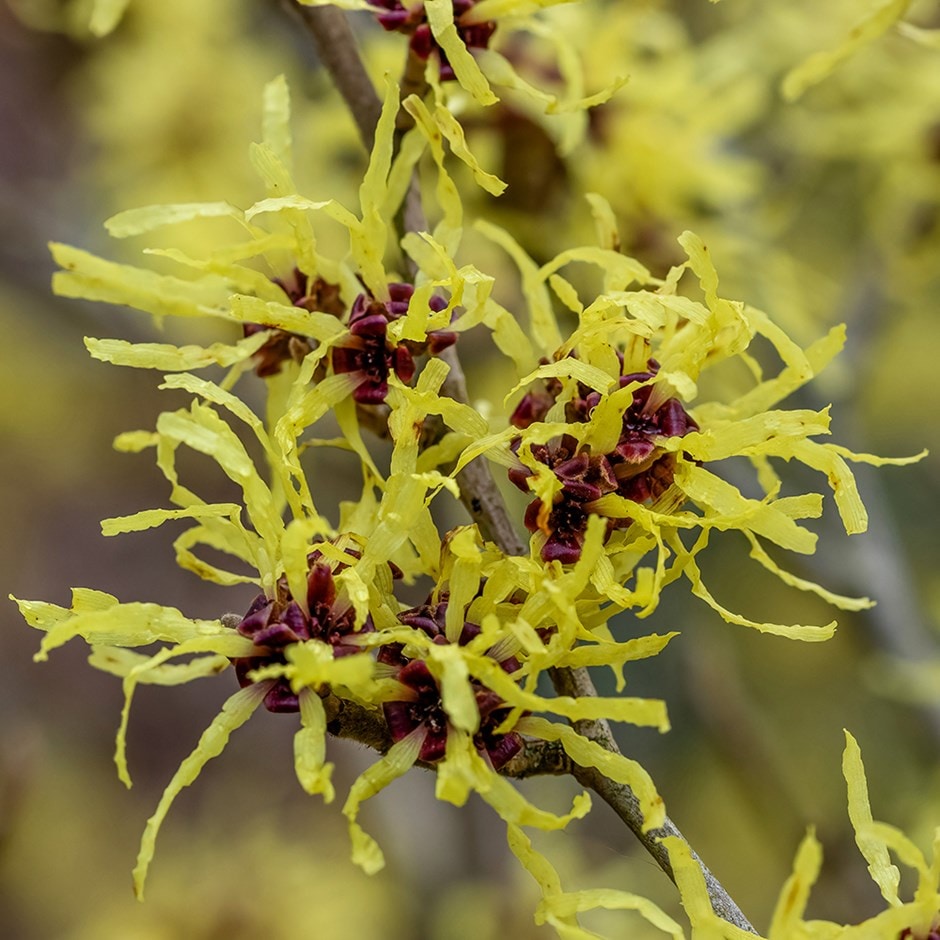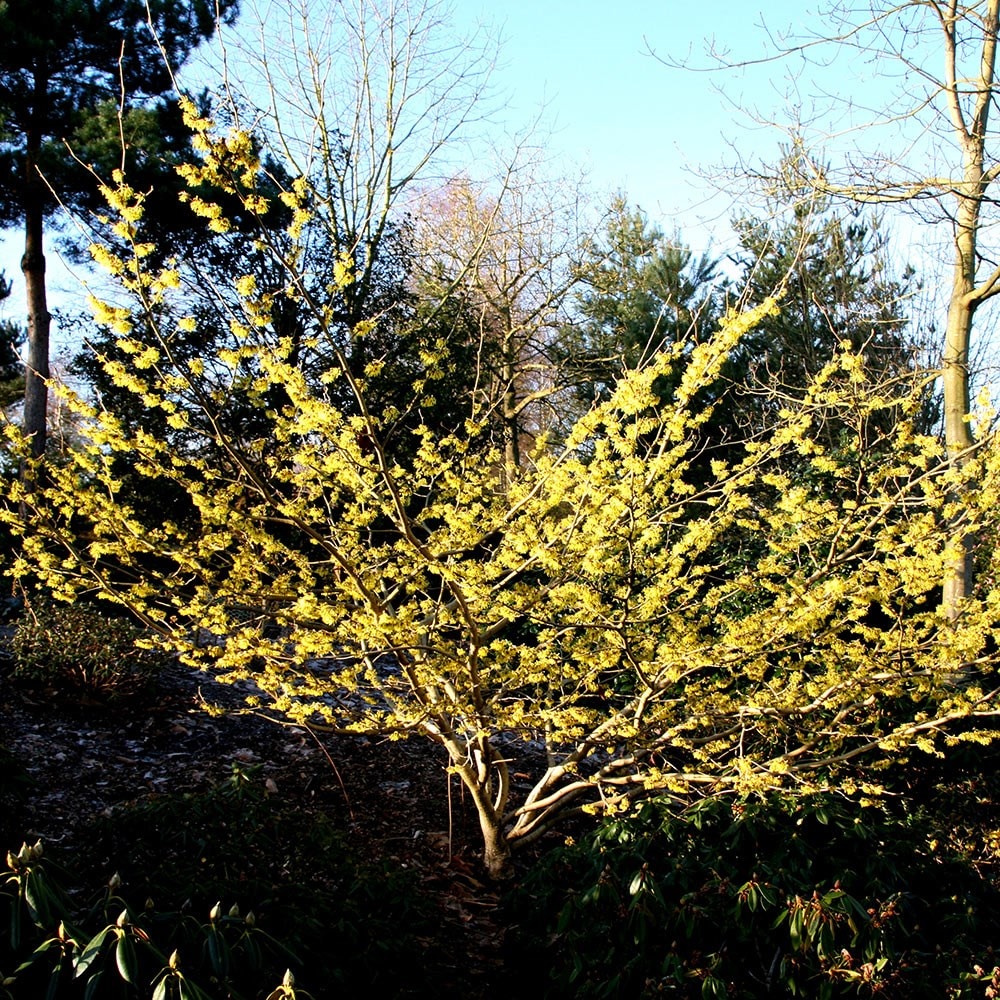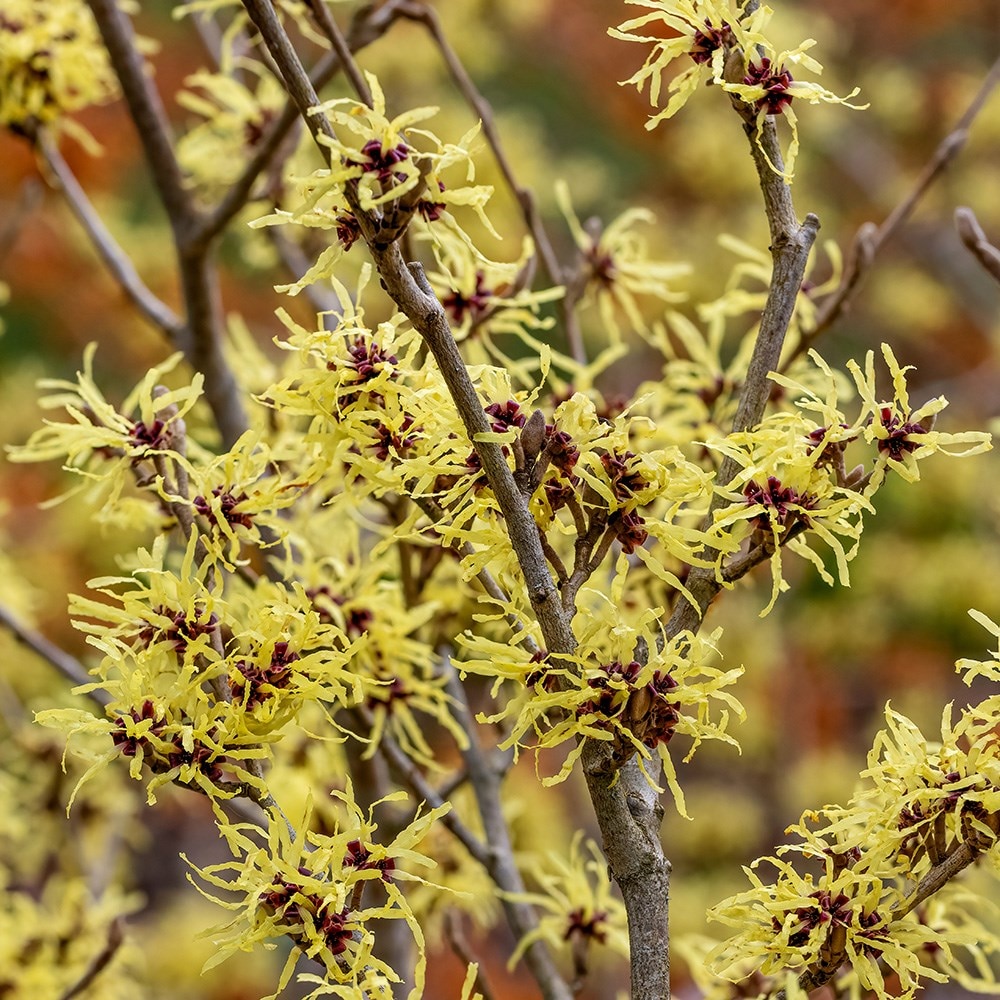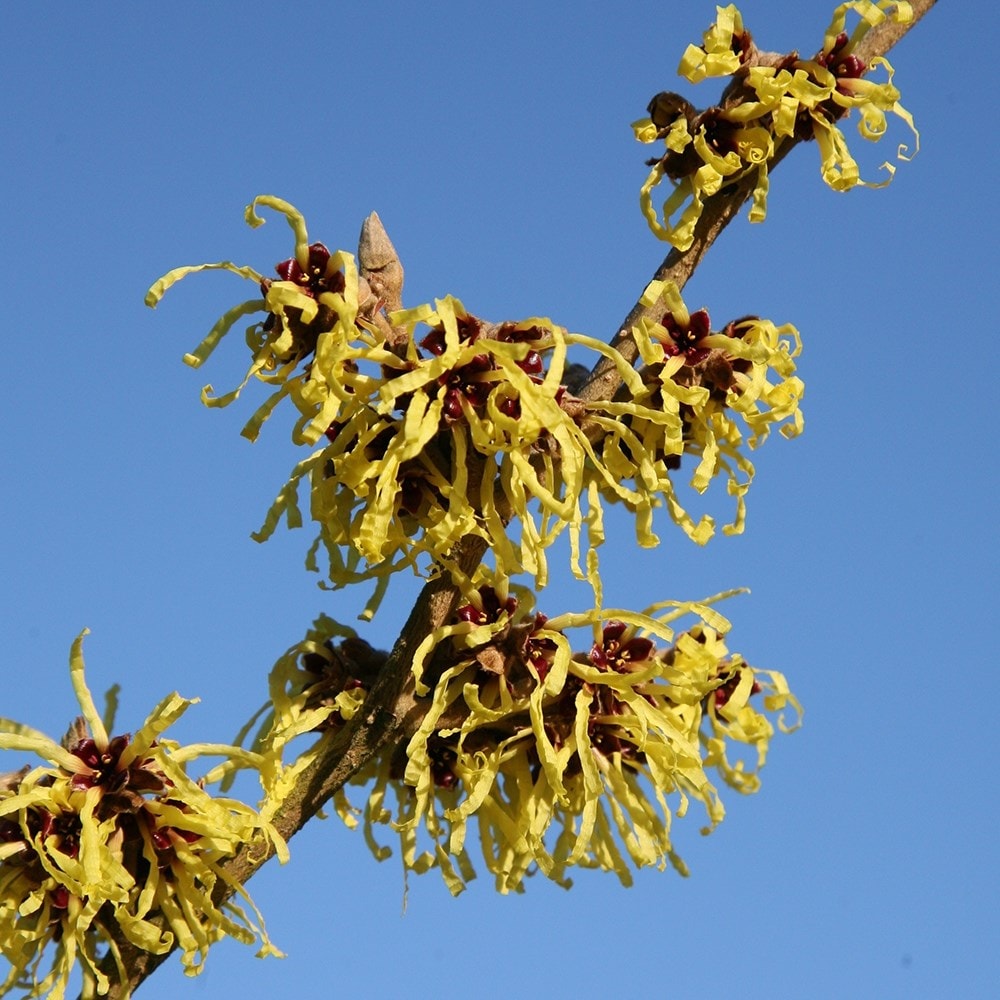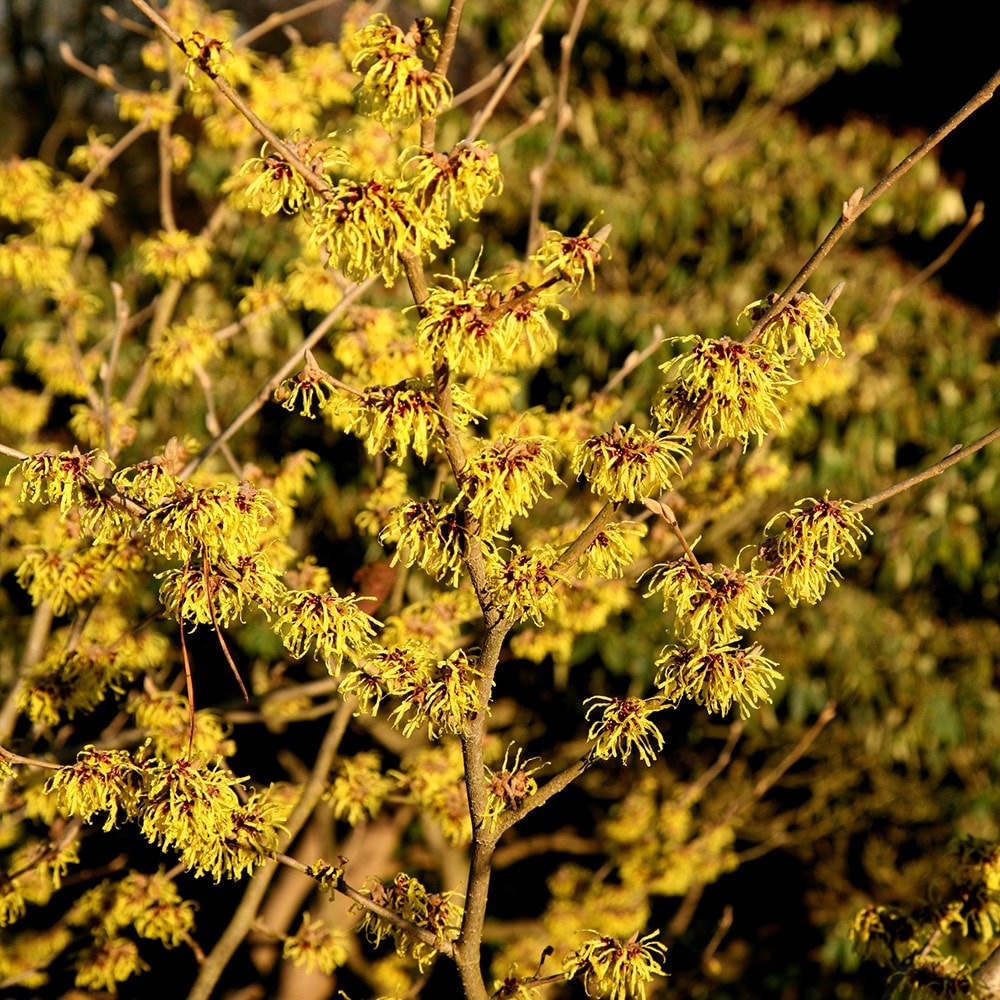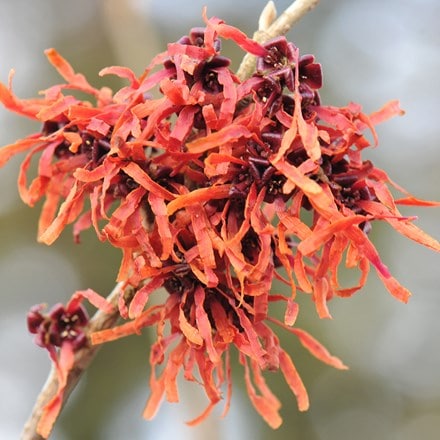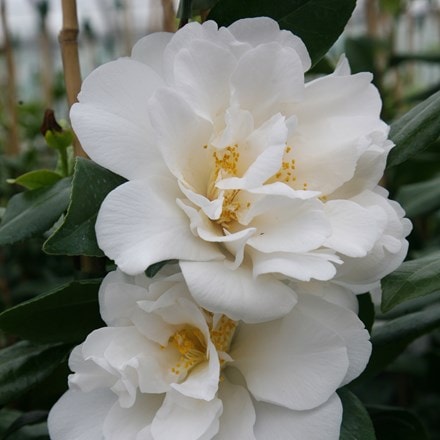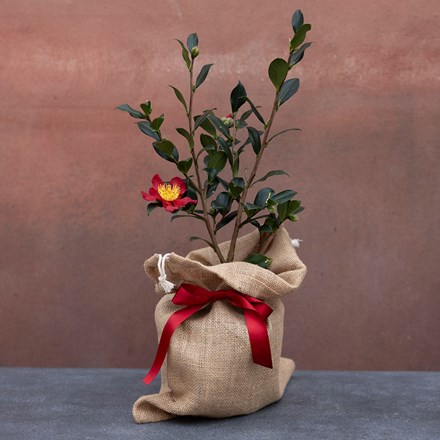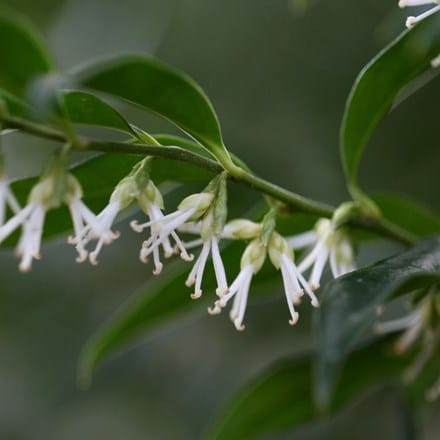Hamamelis × intermedia 'Pallida'
witch hazel
- 3 litre pot | 30 - 40cm tall
- £54.99
- In stock (shipped within 2-3 working days)
- 12 litre pot | 80 - 100cm tall | grafted
- £139.99
- In stock (shipped within 2-3 working days)
Delivery options
- Standard £5.99
- Position: full sun or partial shade
- Soil: moderately fertile, moist, well-drained neutral to acid soil
- Rate of growth: average
- Flowering period: December to February
- Hardiness: fully hardy
In winter, this deciduous shrub has clusters of sweetly scented, sulphur-yellow flowers clinging to bare twigs. In autumn, the bright green leaves turn spectacular shades of yellow, orange and red. The tiered branches of this award-winning variety of witch hazel contrast well with the vertical stems of dogwood.
Hamamelis × intermedia 'Pallida' is a lovely specimen plant for a sunny winter border or woodland edge, where its fragrance can be appreciated. The flowering twigs can be cut to perfume rooms in winter.
Hamamelis × intermedia 'Pallida' is a lovely specimen plant for a sunny winter border or woodland edge, where its fragrance can be appreciated. The flowering twigs can be cut to perfume rooms in winter.
Choose a position in sun or light dappled shade with fertile, moisture-retentive but well-drained soil that is slightly acidic to neutral. Incorporate plenty of well-rotted compost or leaf mould at planting and avoid very exposed or waterlogged sites, as these can stress the plant. Once planted, water well and stake young specimens if needed to keep them steady until established.
Water regularly during dry periods, especially in the first few years, to help the roots establish deeply. Apply a generous 5-7cm (2-3in) mulch of compost, leaf mould or well-rotted manure around the base in spring, keeping it clear of the trunk, to conserve soil moisture and improve condition. Witch hazel benefits from consistent moisture but dislikes heavy feeding, so a light top-dressing of balanced fertiliser in spring is sufficient.
Hamamelis requires minimal pruning. In early spring after flowering, remove any dead, diseased, crossing or misplaced branches to maintain a neat framework. Avoid heavy pruning as this can spoil the natural shape and reduce next year’s flowers; a light thinning is all that’s needed.
We always recommend these plants for a border or open ground location rather a pot.
Water regularly during dry periods, especially in the first few years, to help the roots establish deeply. Apply a generous 5-7cm (2-3in) mulch of compost, leaf mould or well-rotted manure around the base in spring, keeping it clear of the trunk, to conserve soil moisture and improve condition. Witch hazel benefits from consistent moisture but dislikes heavy feeding, so a light top-dressing of balanced fertiliser in spring is sufficient.
Hamamelis requires minimal pruning. In early spring after flowering, remove any dead, diseased, crossing or misplaced branches to maintain a neat framework. Avoid heavy pruning as this can spoil the natural shape and reduce next year’s flowers; a light thinning is all that’s needed.
We always recommend these plants for a border or open ground location rather a pot.
Goes well with
Hamamelis × intermedia Jelena
3 litre pot | 30 - 40cm tall
£52.99
In stock (shipped within 2-3 working days)
